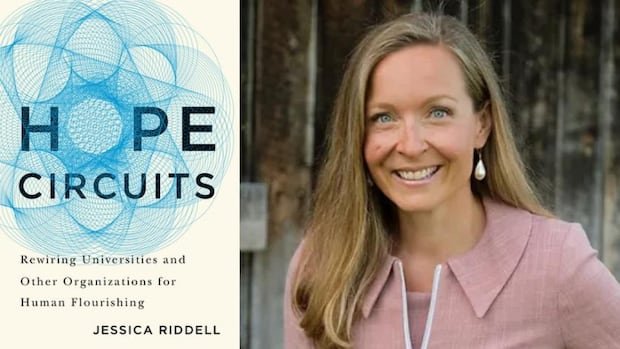In 2022, Collins Dictionary introduced a new term for the year: permacrisis. This noun defines “an extended period marked by instability and insecurity, often triggered by a series of disastrous events.”
During the 2024 Shannon K. Murray Lecture on Hope and the Academy at the University of Prince Edward Island, Jessica Riddell humorously remarked, “And then 2024 looked at 2022 and said, ‘Hold my beer.'” She emphasized that educators possess a natural inclination towards hope and urged them to not only teach hope but also to share it and envision a brighter tomorrow.
Riddell, a distinguished English professor and author teaching early modern literature at Bishop’s University, drew inspiration for her lecture title from a quote by Nigerian poet Bayo Akomolofe: “The Times are Urgent: We must Slow Down.” Reflecting on this, she admitted that her typical response to urgency is to accelerate, but the notion of slowing down resonated profoundly with her.
Acknowledging the prevalent hustle culture influenced by late-stage capitalism, Riddell highlighted the tendency to intensify efforts in challenging times. She noted that amidst urgency, individuals often derive a sense of importance and indispensability from the rush, posing the question of how to find purpose amid overwhelming circumstances. Riddell emphasized the imperative to embrace a slower pace in such moments.
Amid the early days of the COVID pandemic, Riddell balanced childcare responsibilities while working remotely, enjoying impromptu kitchen dance parties, and completing the initial draft of a book titled “Shakespeare’s Guide to Hope, Life, and Learning,” co-authored with Lisa Dickson and Shannon Murray. She described clinging to the book’s teachings on hope, empathy, and love as a lifeline during uncertain times.
When her husband received a lung cancer diagnosis, Riddell’s reliance on hope was put to the test. Writing became her solace, leading her to pen a heartfelt tribute to universities as beacons of hope within communities, particularly within the realm of higher education where she felt most grounded.
Drawing from a myriad of books that portray a grim outlook on higher education, Riddell emphasized that the future is being constructed in the present moment, emphasizing the role of hope in reshaping narratives and fostering resilience.
Riddell underscored that universities are fundamentally purveyors of hope, with learning serving as a beacon of optimism across various settings. She celebrated the robust nature of hope, portraying it as bold, dynamic, and resilient, essential for unlocking individual and collective potential for societal well-being.
She contended that education’s primary objective is to unlock students’ full capabilities and purpose, not solely for personal success but also for the broader flourishing and interconnectedness of society, with hope serving as the cornerstone of this transformative mission.

